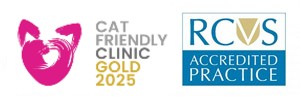Click for the Department of Veterinary Medicine website
Cambridge Veterinary School was founded in 1949 with eight undergraduate students, but its origins go back to 1909 when the University Department of Pathology set up an outstation to study diseases of large animals. In 1935 the University entered into an arrangement with the Royal College of Veterinary Surgeons whereby it ran a pre-clinical course and a postgraduate diploma, with the final two years to be spent at one of the existing veterinary schools. The recommendation of the Loveday report that students completing the Natural Sciences Tripos could go on to take a course leading to the VetMB degree was put into effect in 1949 with the arrival of the first eight students. The fabric of the school grew markedly in the 1950s and 1960s with many new facilities being built, in part to accommodate increased student numbers. In 1975 the Departments of Animal Health and Veterinary Clinical Studies were merged into one Department of Clinical Veterinary Medicine, which then emerged as a separate entity from its position up to then as a sub-section of the School of Medicine.
The 1980s saw further developments in the school, which were abruptly halted in 1988 with the publication of the external Riley report that recommended closing Glasgow and Cambridge veterinary schools. A massive campaign going right to the top of the Government ensured that we stayed open, which was just as well given that a report in 1990 indicated that the Riley report had omitted to calculate the national requirement for veterinarians, and that there was indeed a shortage of veterinarians.
Renaissance
The Department then undertook a wide-reaching re-organisation of its activities which breathed new life into the Department that is still driving it forward today. Since the 1990s, there has been an increased emphasis on research and scholarship, and on providing a cutting edge veterinary education in re-furbished and newly built state-of-the-art facilities. Cambridge remains the smallest veterinary school in terms of student numbers, graduating approximately 65 students per year, but this contributes to a strong sense of team spirit within the Department and excellent staff-student interactions.
Present and Future
We produce clinicians, researchers and practitioners of the very highest calibre. Our graduates follow diverse career paths, with many becoming successful practitioners and academic veterinarians, but with many also going on to become leading biomedical researchers. Many prestigious posts in the various branches of the veterinary profession are occupied by Cambridge graduates.
Veterinarians have never been more needed by society, and we are enthusiastic about providing a science-based education second to none, that will deliver the broadly educated veterinarians that will be required to meet the animal health challenges of the future.


